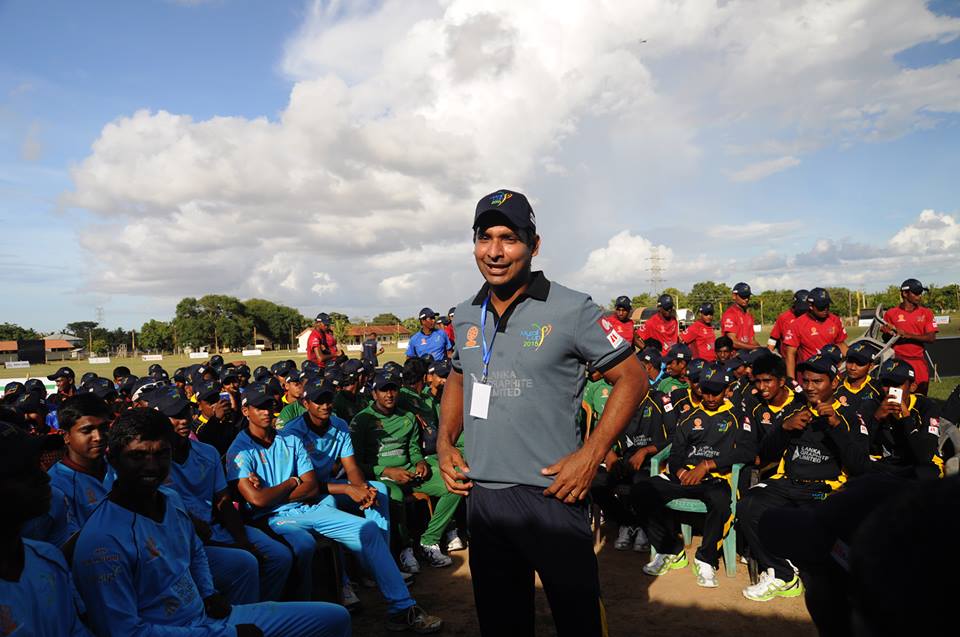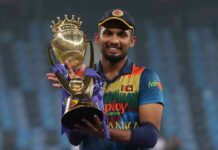Question: SLC President Thilanga Sumathipala thanked you profusely for helping the board acquire the services of Graham Ford as Sri Lanka’s national coach. What exactly did you do?
Sangakkara: I didn’t do much to be honest. Graham Ford left with quite a heavy heart when he left Sri Lanka in 2014. He has been very public in his praise of Sri Lankan cricketers and the way we played the game. He was looking forward to having another tenure with us and he was very excited by the fact that he could work with all those talents. He was not disappointed that Mahela and I were retiring, but very excited that he could build on the team once we were gone. He had his plans. It was unfortunate that he left when he did. Even when I had my stint with Surrey, he always spoke how he would love to be back. I could understand that he was a bit cautious of coming back because of few things – with regard to his security when it comes to his future and his tenure as coach. When they asked me whether I could have a word to Graham, I said yes. I firmly believe that he is one of the best people to coach us. After Fordy left us the way he built Surrey was amazing. That was a tough job for any coach. He made it look quite easy. I spoke to Fordy and he had to make some tough decisions and we had to be thankful to him for making those tough decisions and accepting to come back. It might have upset a few people. He had just extended his stay at Surrey. But they were very understanding. There’s lot of things that happened allowing Fordy to come back.
Question: You will be 39 this year. Other than finishing this season with Surrey, any other playing commitments you are looking at.
Sangakkara: I have signed with Surrey, I have signed with Caribbean Premier League with Jamaica. I might try and go back to Bangladesh for their T-20 tournament. It was a very good tournament the last time I was there. Then after that the Big Bash in Australia and then reassess from there.
Question: Surrey are in top division now. Tell us about the experience to share the dressing room with someone like Kevin Pietersen.
Sangakkara: I have been playing county cricket elsewhere in places like Warwickshire and Durham before. Surrey had this reputation as being arrogant and snobbish and being not liked very much in the circuit. When I accepted to play for Surrey, I knew Fordy was there and that was some security. But back of my mind I had this preconceived notion of what these guys maybe like. I was surprised when I walked in because they were exceptionally good guys. Very humble and very keen to learn. We say that club cricket in Sri Lanka needs to be professional. Professionalism means the entire concept. The back room staff, coaching staff, administration, the way the tournament is set up and the tournament rules. All these things. The Surrey dressing room was one of the most enjoyable places for me in my career apart from the Sri Lankan dressing room. I was very impressed by the players. Someone very young as 17 year-old Sam Curran. Others 21 or 22 like Jason Roy and Steven Davis. Then Kevin Pietersen, who was trying to come back. It was an amazing mix of people. All of them had one driving force to play good cricket. They didn’t bother about egos and Stuff. Even when Kevin walked into the dressing room, it was refreshing to see him sit down and everyone treating him in the same manner they would treat any other person. He wasn’t the Kevin Pietersen the cricketer, but KP for them. They would make jokes at him and pass comments at him. Gareth Batty as captain played a huge role. He is a solid human being. Great lesson for all of us and the current captains in our side like Angelo, Chandimal and Lasith to accept the differences in your own team. Differences not in personality, but differences in opinions as well at times. You need to go beyond that and let the guys believe in each other.
Question: You are a selector now. What convinced you to accept that role?
Sangakkara: It was quite a late call. Ended up quite late at the cricket board. It was mainly due to a request made by Aravinda de Silva. He has been the best selector I have worked with. When it comes to cricket strategy and when it comes to understanding combination he was very good. A very personal request from him as well. He said it doesn’t matter whether you are able to do it, It’s a time where you are needed for this period of time. I had to think long and hard. Then I accepted it for a brief period. Not that once we come in we can do miracles or whatever. We can offer players a bit of our expertise like the combination we need to play. The previous selectors would have had a plan how they would approach selections. We need to work on that frame work and support the team. The previous selectors had made plans for two years and it’s important to have continuity. After this World Cup, hopefully the administrators will look at long term selectors. They address the selection committee the same manner they address the team. They work long term. A 15 member national squad and a 15 member ‘A’ team that could work for a period of two years is good. You don’t have a situation where 40-50 players play in the ‘A’ team in a year or 25-30 players play in the national side in a year. There has to be an understanding between the administrators, selectors, players and the press. So that when players look at themselves, they realize that they are not there for a tournament, but for year and a half. That’s not a long time, but a time long enough for everyone to settle in. That will help them to decide whether these are the players meant for those roles without making hasty decisions after two games or a few months. That kind of long term planning would be great. Then streamlining our First Class cricket is important too. There’s a wonderful proposal that has come in from Mahela. A proposal we had worked on and spoken about for a few years. There are so many aspects in that if we can implement and fine tune our First Class cricketers. The implementation of that is vital.























